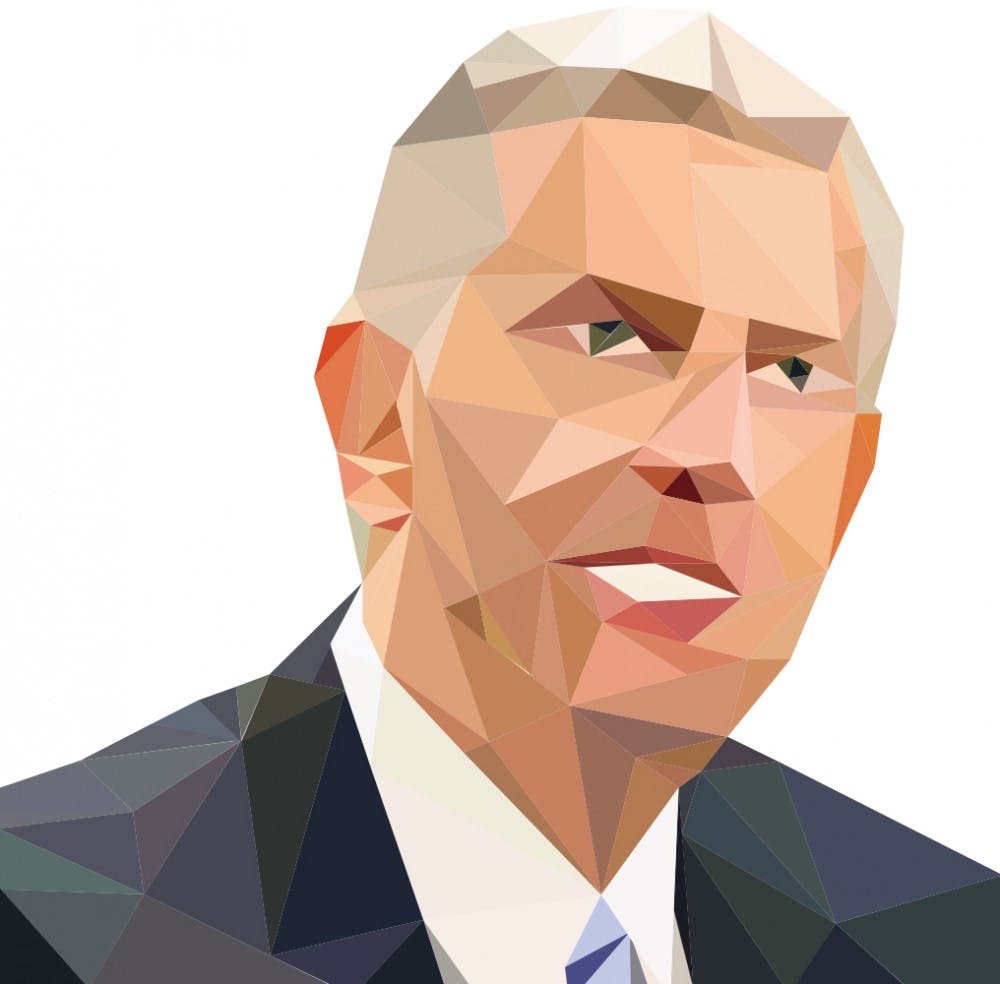Ross’ public removal has played some role in the public’s perception of his departure, Watson said.
“As it stands right now in the minds of a lot of people, he is a symbolic victim of political interference within the inter workings of the University,” he said. “Whether that will continue to be true is one of those things that is too early to say.”
Jenna Robinson, president of the Pope Center for Higher Education, said she thinks the controversy surrounding the Board of Governor’s decision to remove Ross will affect his legacy.
“Because he left against the wishes of many in the UNC-system faculty and administrators, I think that they will remember him maybe with rose-colored glasses because of that,” she said.
Robinson said prior to his ousting, Ross’ reputation within the University system was positive but has been accentuated since his ousting.
“I think there is an element of people making him a martyr because he left because he was forced to resign rather than doing so willingly,” she said. “And I think prior to that, the universities were content with Tom Ross, but I don’t think that they idolized him the way that they say they do now.”
And Watson said frustration with the BOG’s decision is grounded, to an extent, in the recognition that a long line of UNC-system presidents have been influential in state politics and education.
“The action of the Board of Governors seems to be a rejection not only of President Ross but of that legacy,” he said.
He said since many who are deeply attached to the University system also share Ross’ political affiliations, he is unsurprised public response has been so loud and lasting.
“I’d have to say it’s not surprising that the dismay did not blow over a week after the decision was made,” he said. “I think that’s just a sign of how deeply some North Carolinians care about the University.”
Peter Mucha, UNC’s interim chairperson of the faculty, said Ross’ efforts to lead the system were recognized even before his ousting.
“That general feeling was there before we found out that he wasn’t going to be president of the system for that much longer,” he said.
To get the day's news and headlines in your inbox each morning, sign up for our email newsletters.
Inclusive leadership
UNC sociology professor Andrew Perrin said he thinks the public will long appreciate Ross’ contribution to the University system.
“He made sure that all the voices that needed to be heard were heard and that the decisions that got made were made for really good reasons,” he said.
Though he had few interactions with Ross, Perrin said his leadership style was principled and ethical.
“My sense from afar was that his leadership style was very inclusive,” he said.
Watson said his interaction with UNC-system faculty is less frequent because of the nature of his job description. As president, he said Ross largely interacts with school administration, the Board of Governors and trustees at schools in the system — so Watson said he’ll “give the system a pass on that one.”
“Honestly, I think they deserve the lion’s share of the president’s attention,” he said.
Zack King, president of the Association of Student Government and a non-voting member of the board, said in an email that he admires Ross for his charismatic leadership and interpersonal skills.
“If you can catch him when he’s not busy, he’s always willing to strike up a conversation,” King said.
And this inclusion carried over to hiring processes, according to John Lepri, a former chairperson of the faculty senate at UNC-Greensboro.
“In one of his primary roles, hiring and equipping our chancellors to do their work, he has successfully increased ethnic and gender diversity among the leadership of our University system,” he said. “Increasing diversity in leadership spills over into all areas of university life, and Ross’ success here is outstanding.”
Mucha said Ross’ attention to the specific needs of each university campus has been one of his most notable achievements during his tenure as president.
“In his attempts to promote the general welfare and the development of the universities, he’s done so in a way that strives to balance activities with the system as a whole with the individual priorities of individual campuses,” he said.
He said Ross was clear in his motivations as president.
“President Ross always made it clear that his leadership was being driven by an appreciation for the core values of public higher education and that he wanted to see those values manifested in excellence across the entire system.”
state@dailytarheel.com




